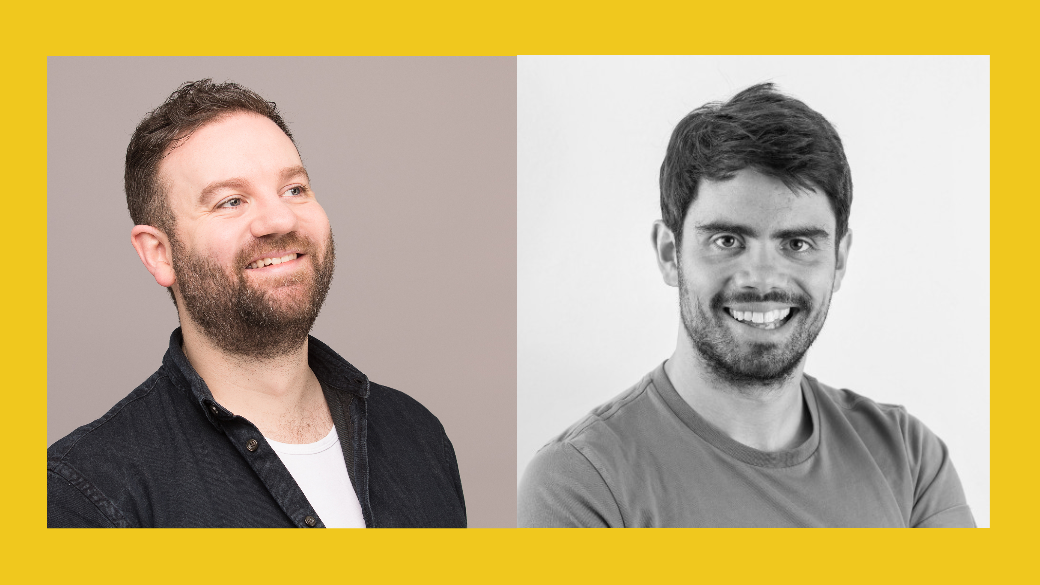Interview: How To Hire For The Future, Remotely
27 July 2020

Talentful founder and Co-CEO, Phil Blaydes, joined Charlie HR founder Ben Branson-Gateley on The Culture Ops Podcast to discuss how COVID has affected the way we interact, and what that means for how we'll hire in the future.

How do you think how we hire for talent is going to change out the other side of this?
I think the COVID crisis will bring about change but a lot of that change will be positive. People have been spending a lot of time taking stock of where they are and what they’re doing. For us, it’s been a great time to reflect on how we operate and make plans for how we will adapt for the future.
In the tech space, I’m predicting that people will spend more time working from home and will be more selective about the face to face contact they have.
Video technology usage has increased in all aspects of our lives over the past few months, from more video calls and meetings as professionals to becoming Zoom Pub Quiz experts in our personal lives. At Talentful, we have increased the number of webinars and virtual events we are running to further our demand generation activity and I certainly see this trend continuing.

What are the challenges going to be?
I think there are two big changes afoot:
- How we interview talent
- Who we hire
Traditionally, interviews have always been an in-person part of the hiring process. Video interviews were very much the poor relation but out of necessity, everyone is being interviewed on video. There’s democratisation happening, and actually, for those people who find in-person interviews more stressful than video, it’s creating fairness and a more level playing field.
Hiring managers are going to have to get a whole lot more comfortable with making decisions based on video calls.
The world of work will probably look a bit different on the other side too. If your company is going to become quite remote orientated, are you assessing for the kind of traits that make this work long-term?
From a company to candidate and future employee perspective, this involves a higher degree of trust that they can and will be doing the work they were hired to do from home, rather than in the office.
From a candidate to company perspective, I think companies will need to increase their focus on their employer branding and how the business continues to provide a strong and engaging work culture for incoming talent.
This period of working from home has been very different to working from home in normal times as it has been constant and the only option available to everyone but has certainly proved that the majority of people can successfully work from home.
Are the days of the in-person physical interviews over?
I think video interviews could really replace first stage interviews. This stage, in my opinion, is about finding the fit for the role. Has this person done relevant things in their past which will help drive your business forward in the future, how do they explain their history etc. This can be done on video fairly easily.
However, I think humans are hard-wired to trust their gut feel. It’s our primeval brain taking over, we’re picking up on micro-expressions, body language etc. It’s evolved from keeping us alive in prehistoric times.
It’s not the way to make objective decisions but we’re dealing with the muscle memory of hundreds of years of recruitment.
I think the general population will find it hard to hire without actually meeting people. Perhaps in startups, though, people might take the risk as a necessity to continue growth.

What do you say to someone who says you can’t truly test values and culture fit virtually?
Personally, I think the whole concept of culture fit is flawed anyway.
For a growth company, you’re constantly looking to improve. If you’re just looking for someone to fit in, then it’s unlikely that you will grow to your potential.
The most important thing is to make sure people are not a negative fit. I think we should be looking for highly negative traits in people: not team players, not taking responsibility, low attention to detail and narcissism. Ensuring people don’t have those (if you want to build a cohesive team) is much more important than only seeking out the positives.
I think with virtual interviewing, we’re being more objective. It’s less “I’d go for a social drink with this person” or “I’d be friends with this person outside of work”, and more “on balance, this person seems like the most competent based on their actual answers to specific questions with relevant examples rather than their ability to build rapport quickly.”
Hiring ‘people like everyone else here’ probably feels comfortable and less risky for a lot of people, but in my opinion, it’s not the smartest move when you are looking to scale the business. The more diverse your talent force is, the more likely you are to reap the benefits.

What are the steps companies should be taking to be prepared for when we can start hiring again?
Many companies are still hiring at full tilt and are snapping up some amazing people. One of our clients has grown from 8-58 people in two just months. We’ve also seen a number of clients unfreeze their hiring processes recently which suggests that people are starting to see the light at the end of the tunnel.
- Prepare for the future by looking to hire now. Make sure the whole hiring committee is aligned on who and why they’re hiring: write down the process, discuss the questions, define good and bad answers, know what your negotiables and non-negotiables are. Everyone should know what each other is asking so there’s no duplication (unless you deliberately want to ask the same question twice in different interviews to ensure you get the same answer).
- This is important in both types of interview but more so now. Start the interview with warm-ups, it’s easier to do the niceties in person but I think it’s critical now. Make people feel at ease and you’ll get far better results.
- Know that the hiring market for sought after talent isn’t any easier than it was pre-lockdown. It’s just a bit different. Brilliant people have been made redundant or furloughed during this period, totally true. They are actively looking and you may be able to get a conversation with them that you might not have previously.
It’s important to note that a lot of companies are still hiring, and they are not dropping their salaries (from what we’ve seen at least). Good people are rejecting offers out there which are not suitable. Those who were tentatively looking before this crisis and work for stable companies are firmly below the parapet now, not entertaining a move due to job security fears.
So, the net market for candidates in certain areas is probably the same or actually even less than before. It will come back, but for now, the market is fairly illiquid apart from those people who need to find a job. Patience, understanding and a continuous assessment of the talent landscape is key to success.



